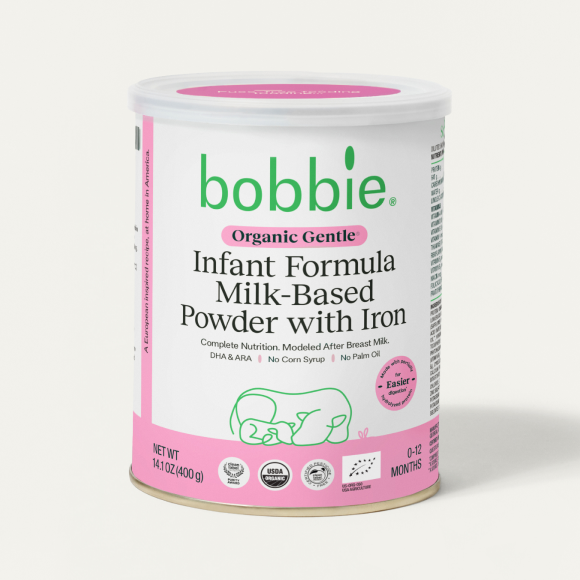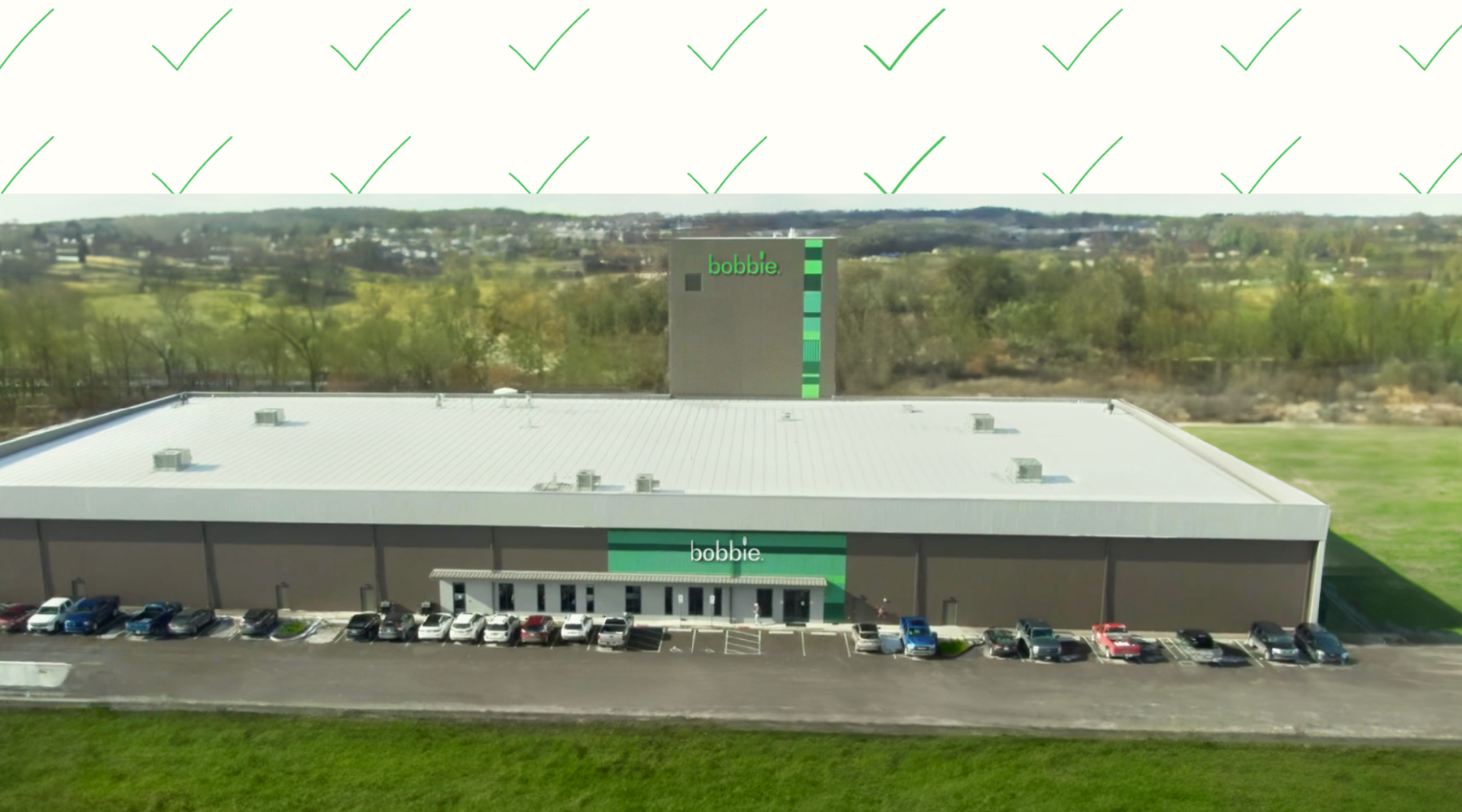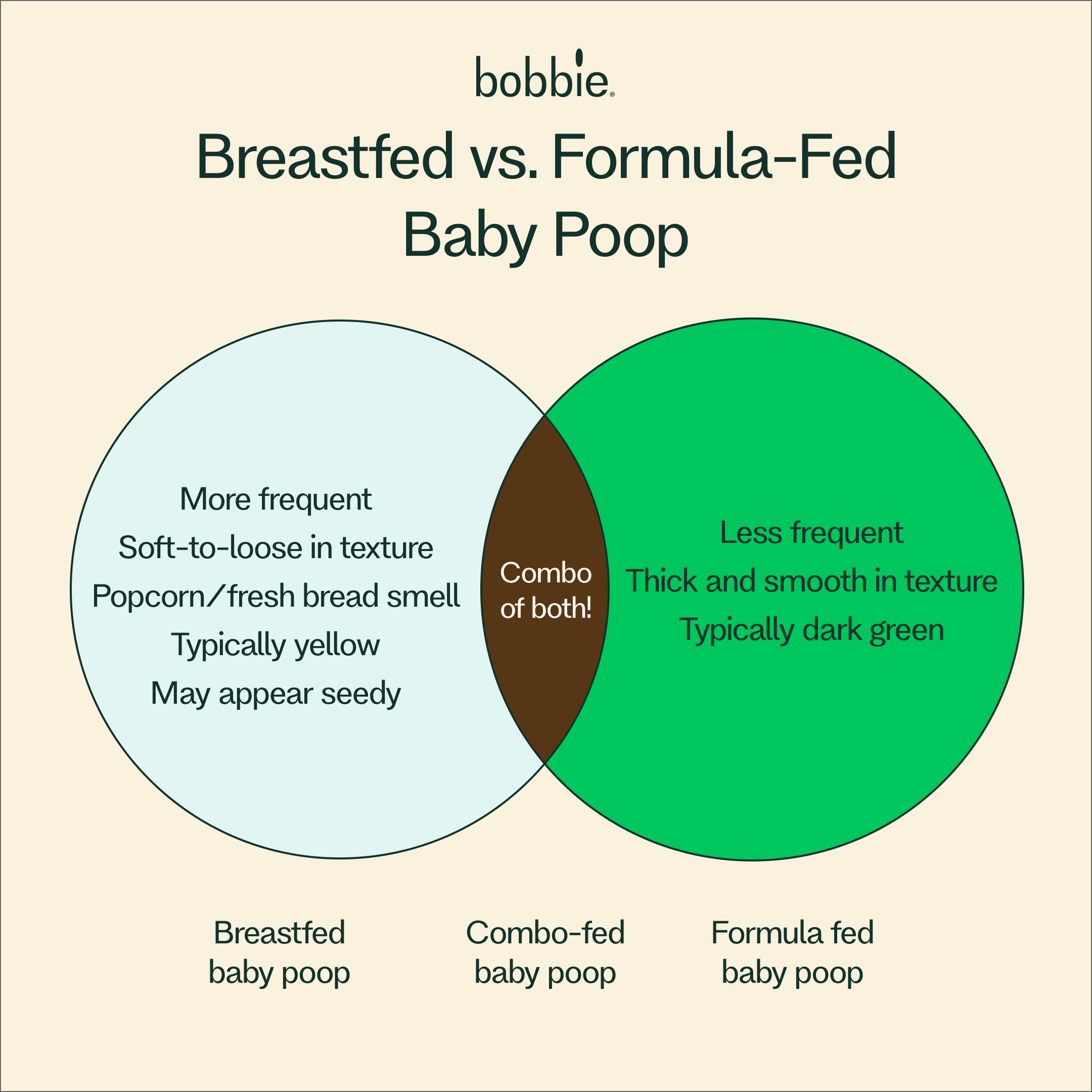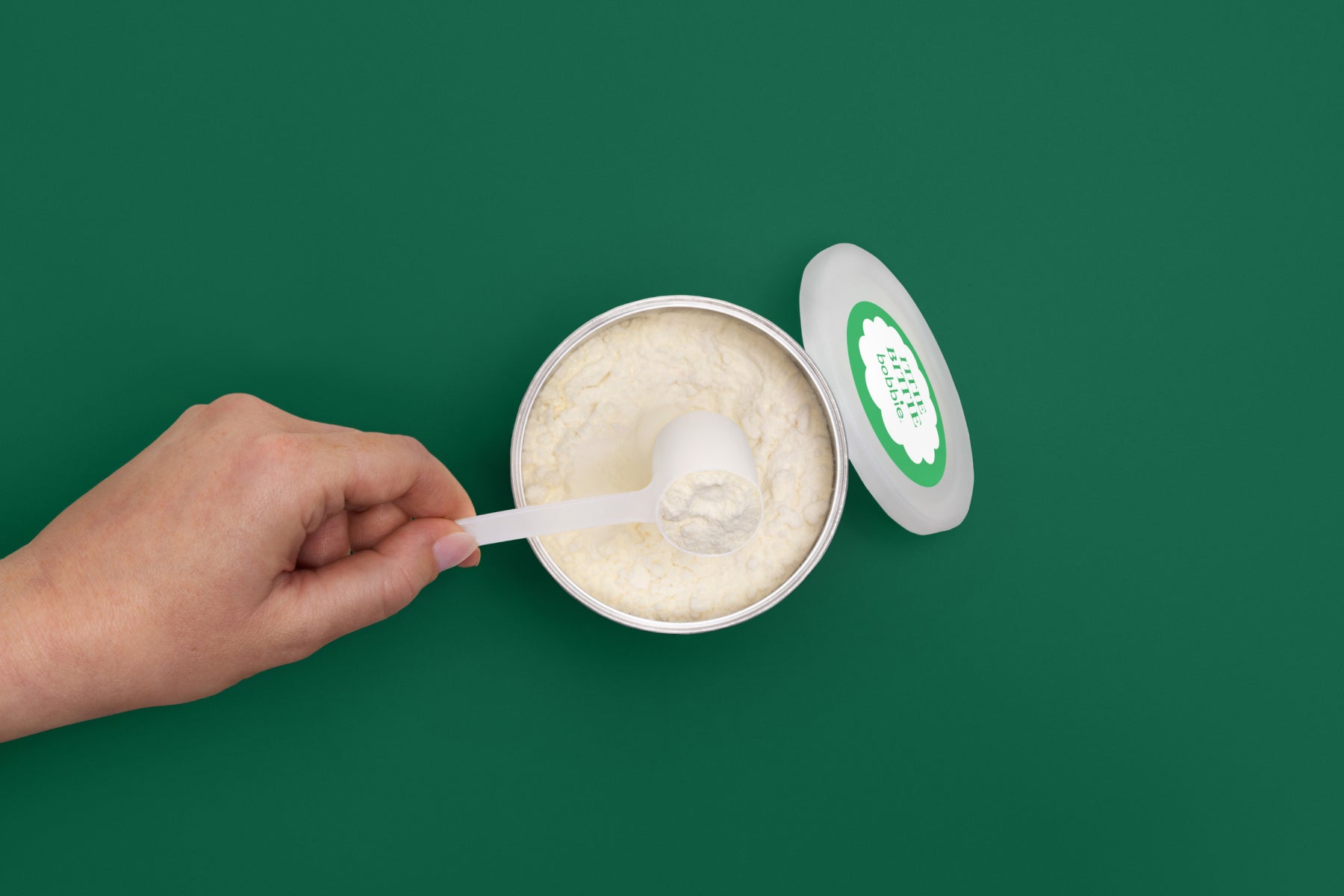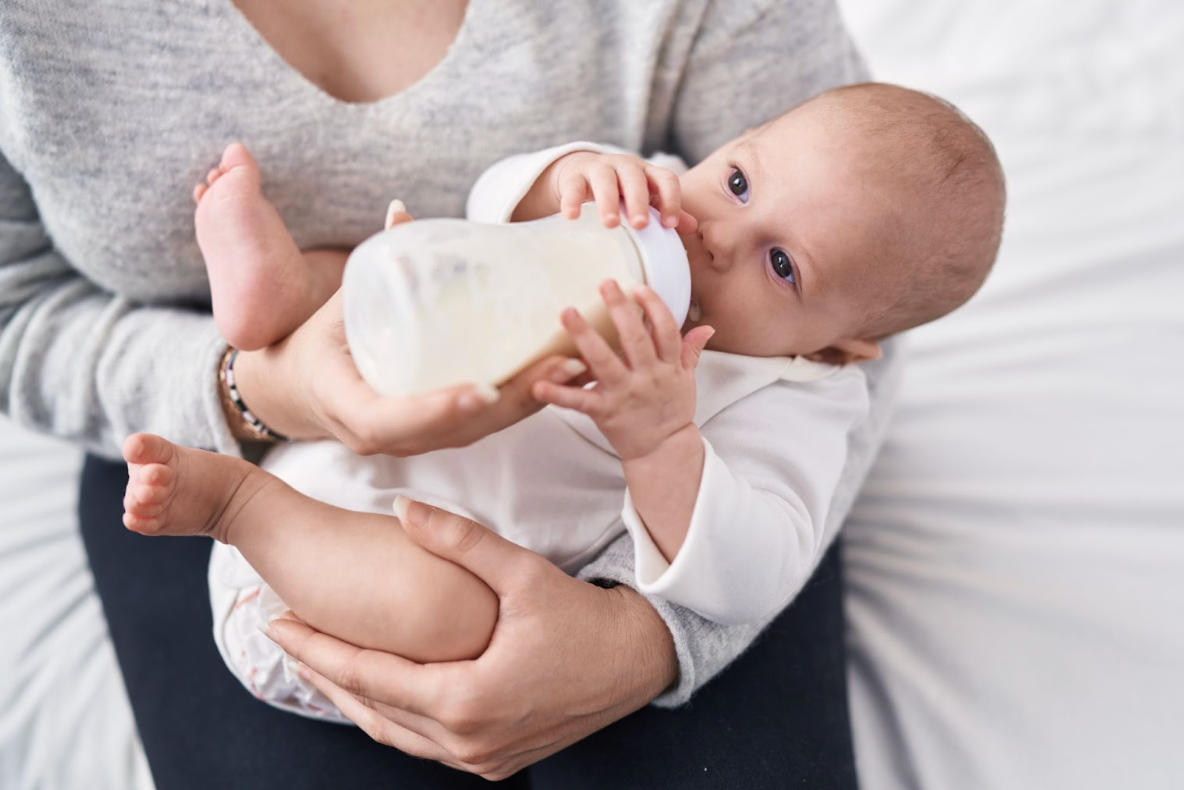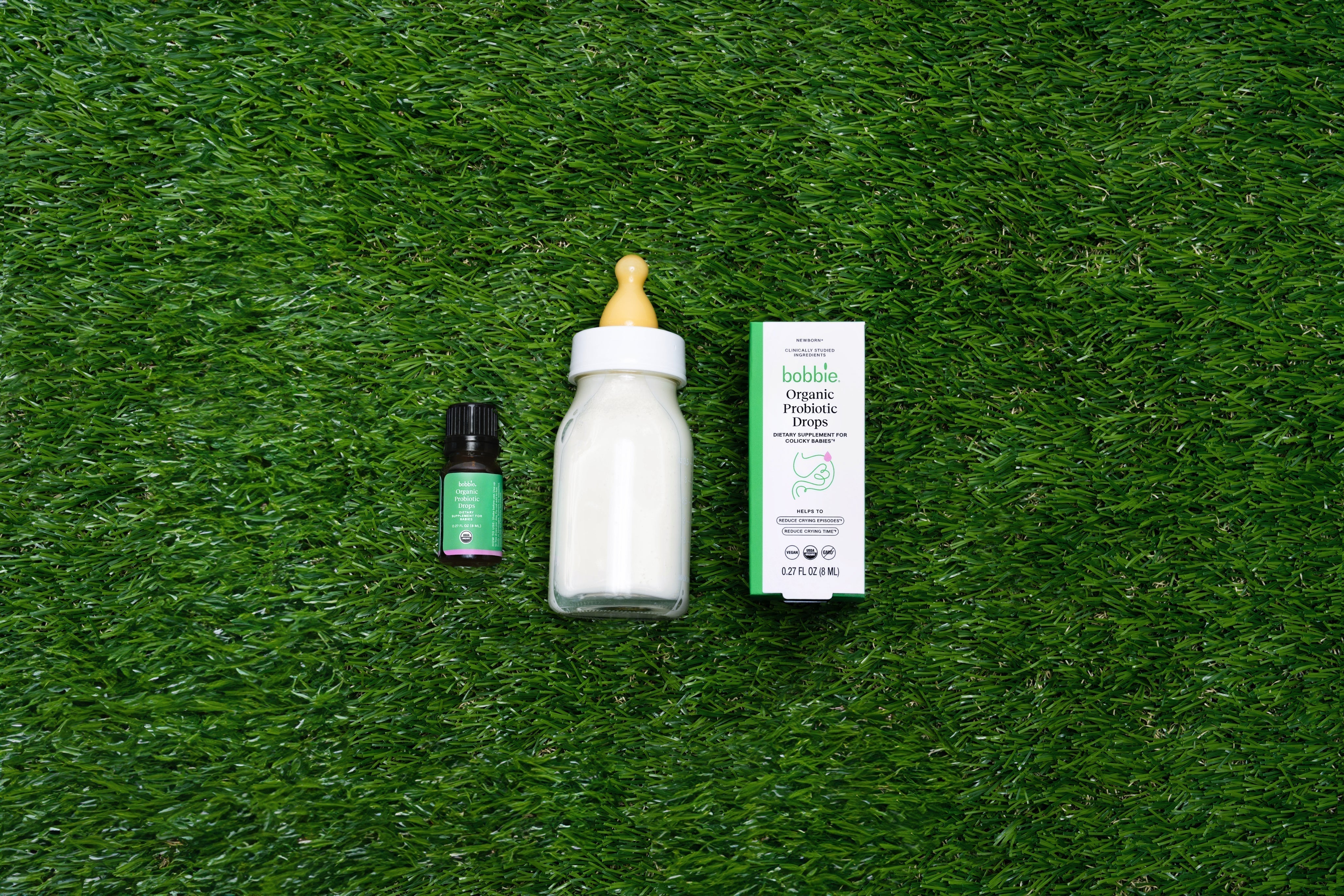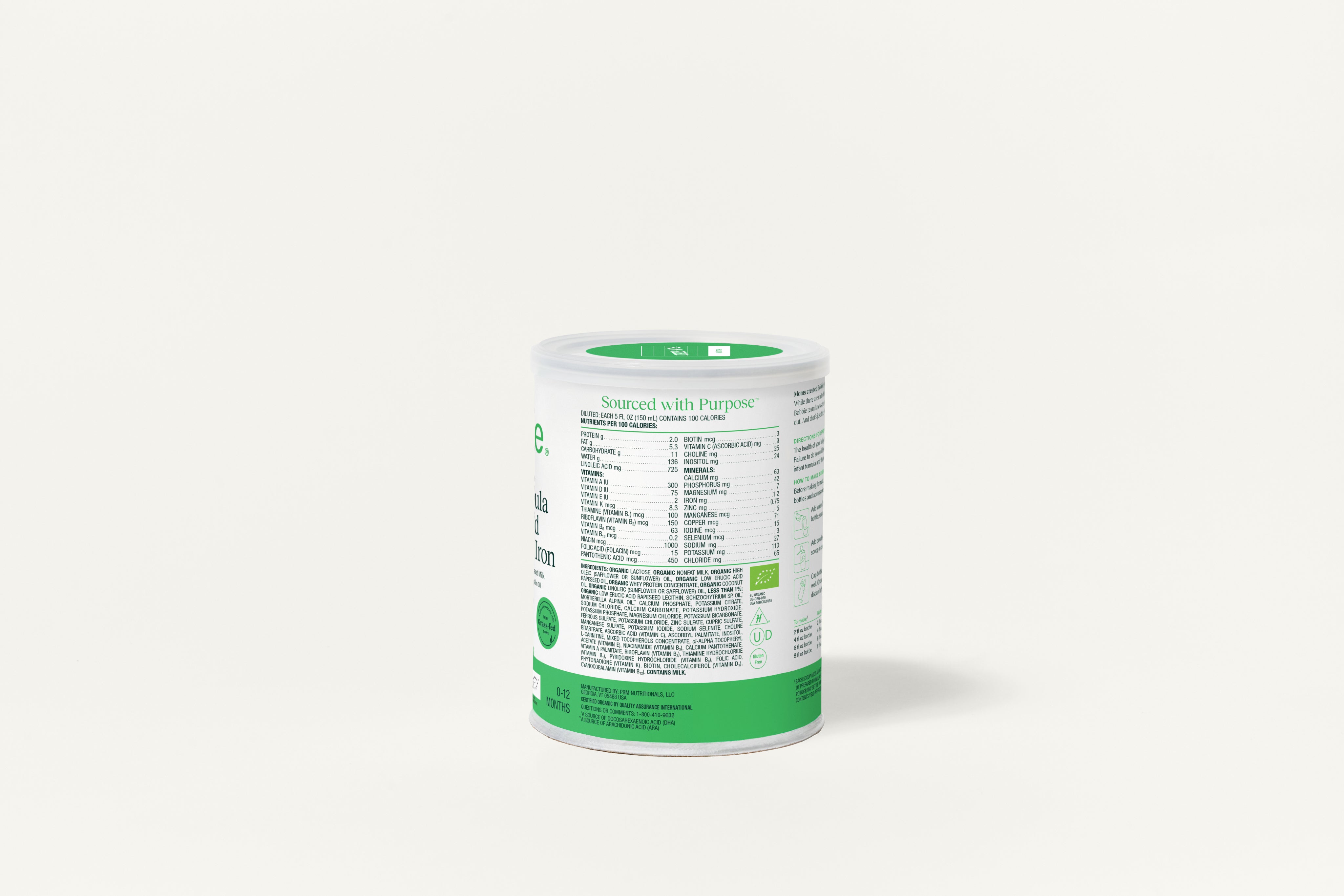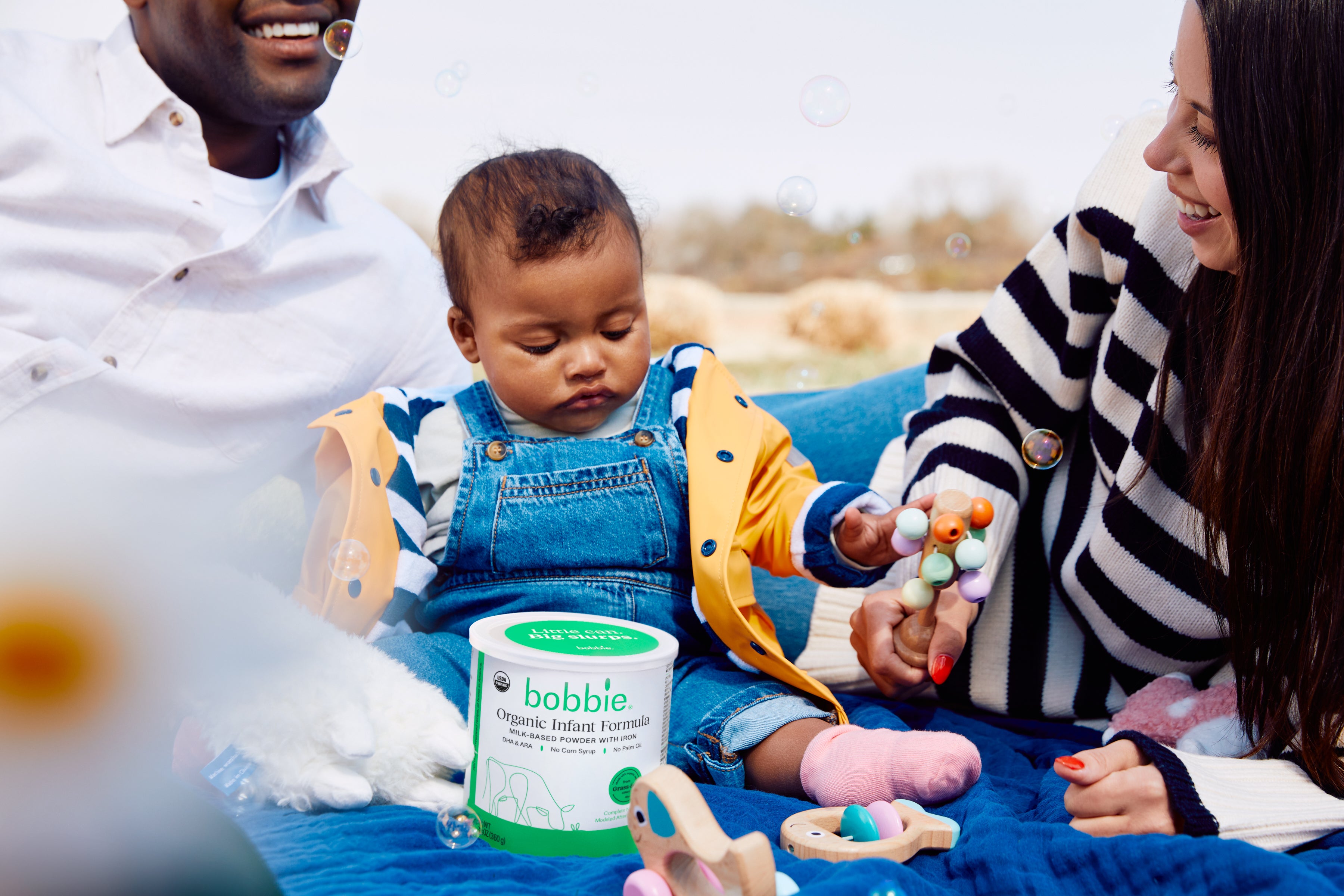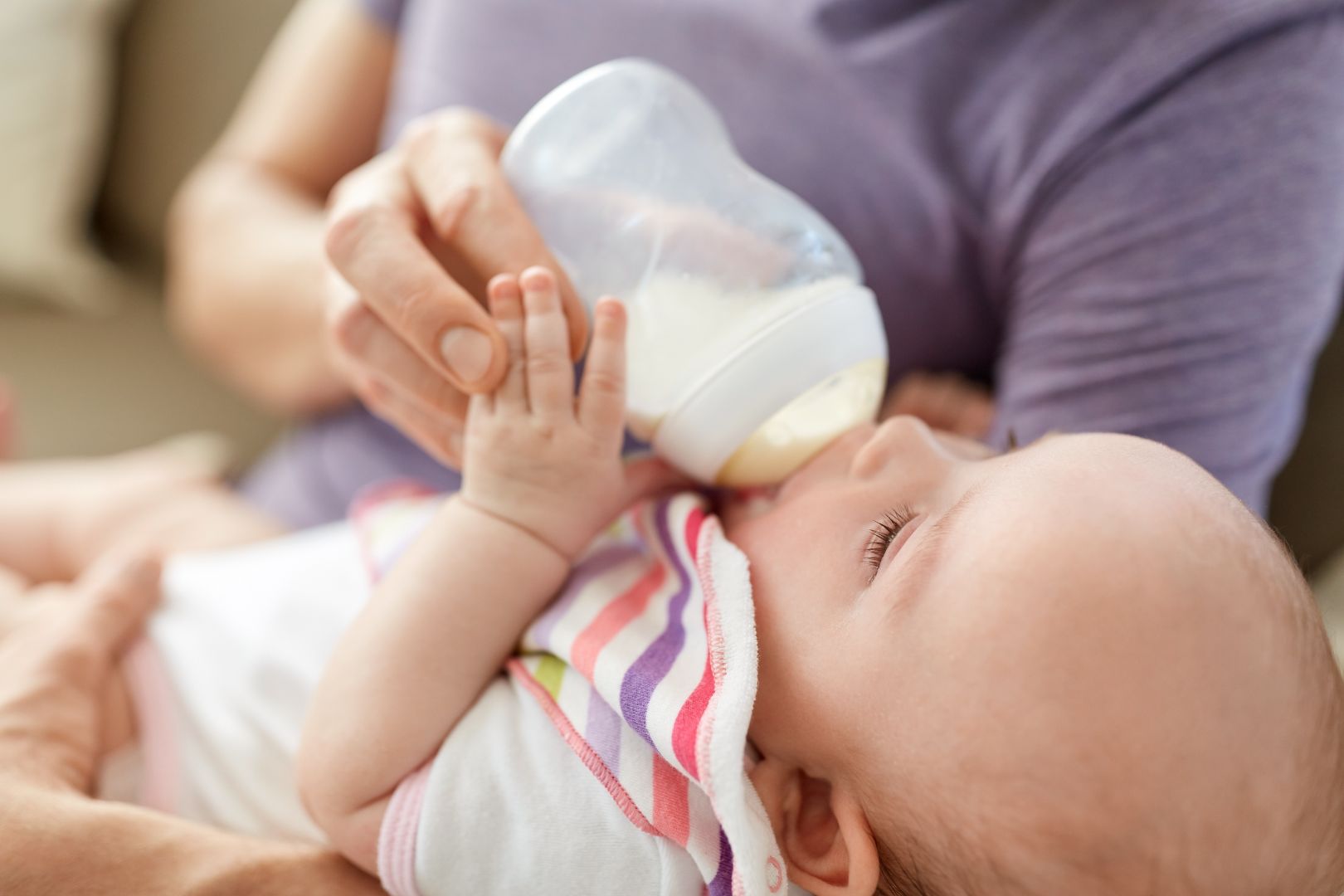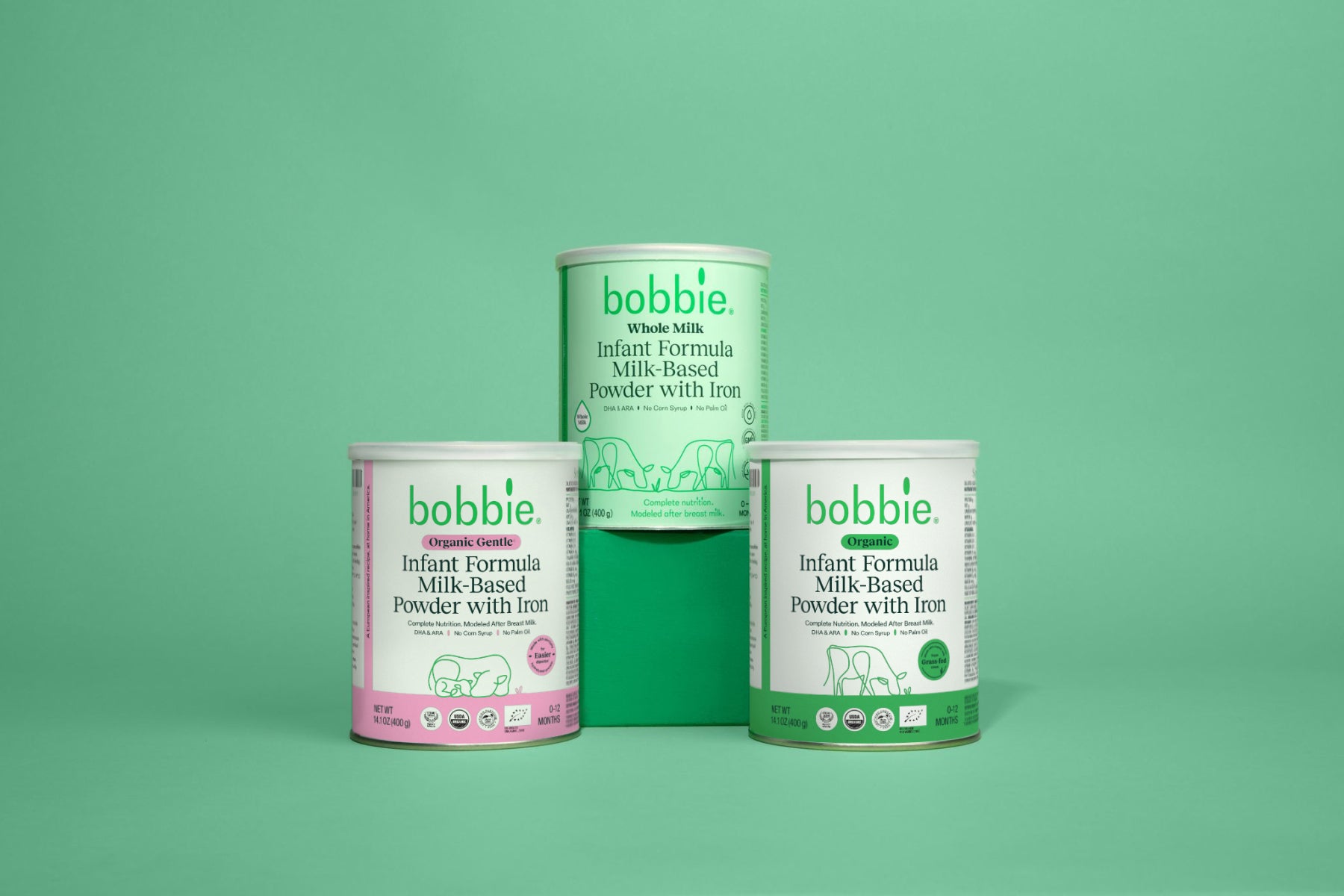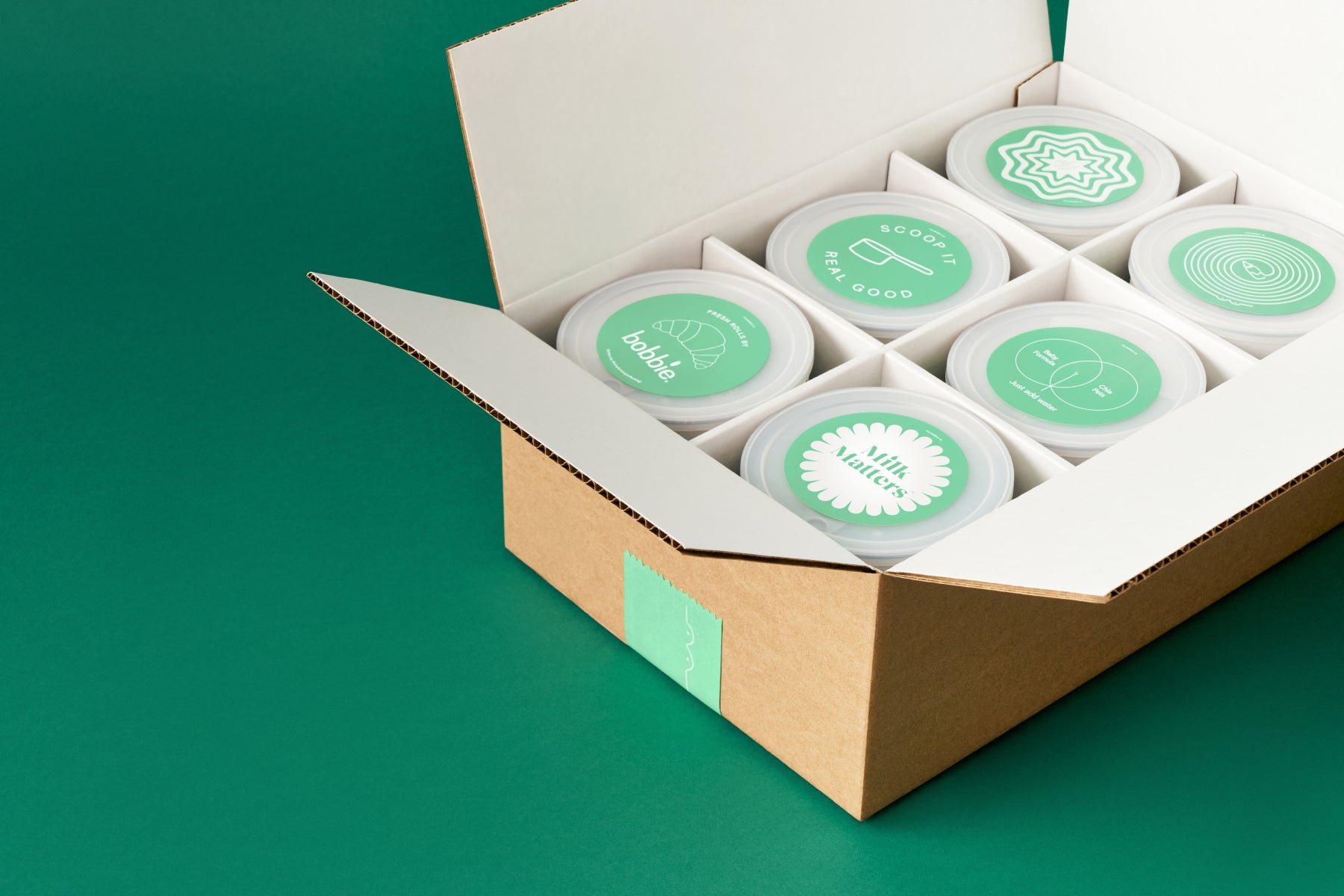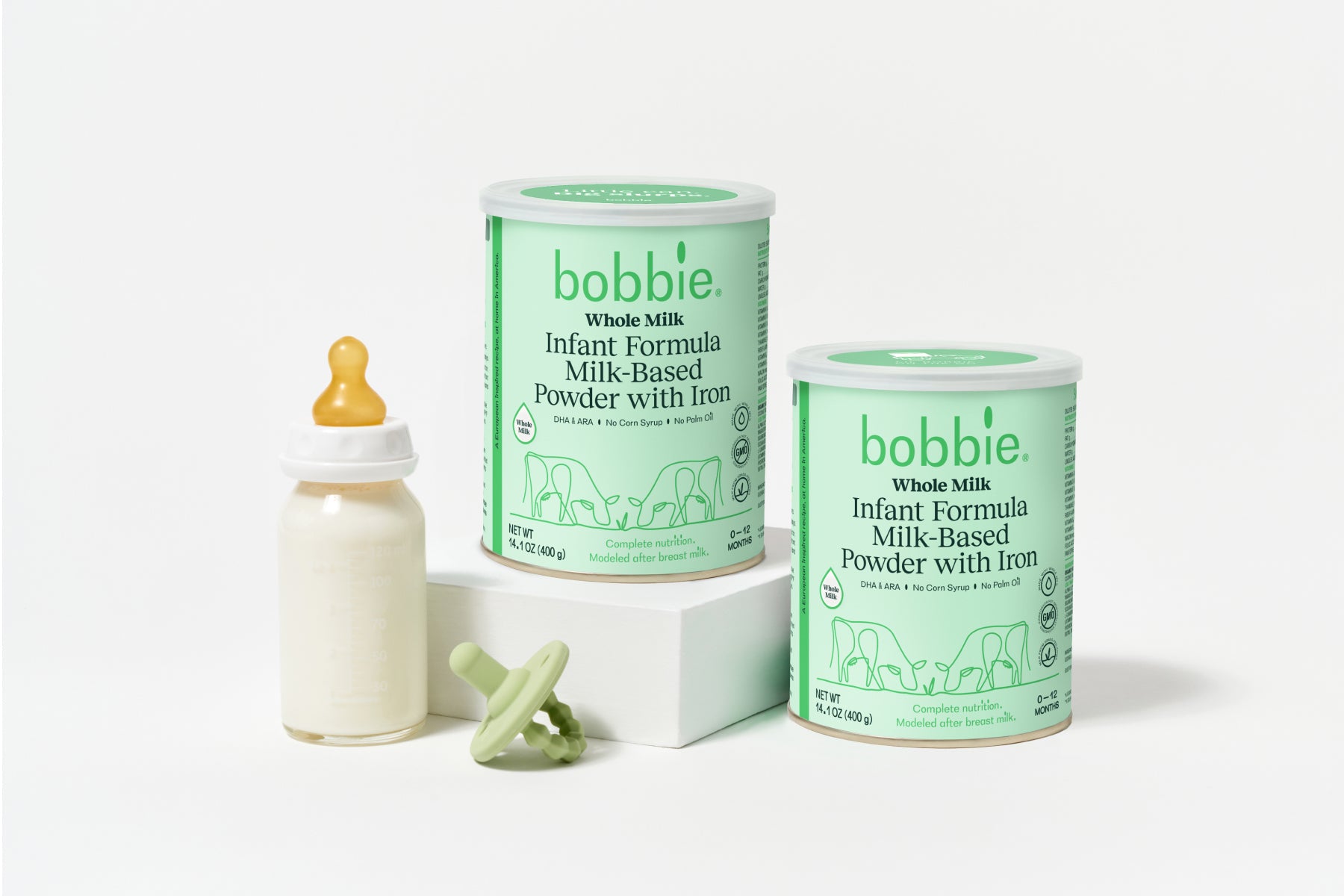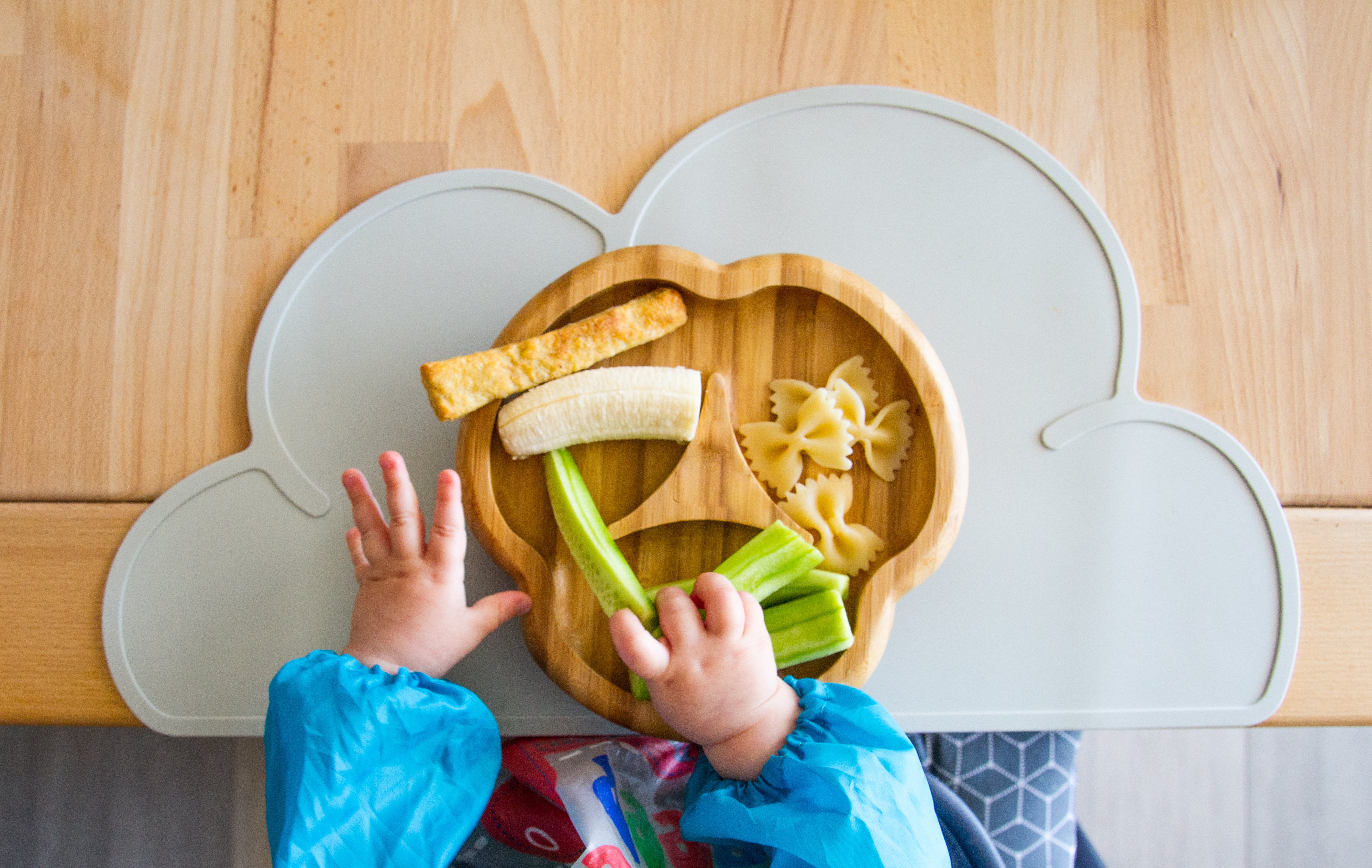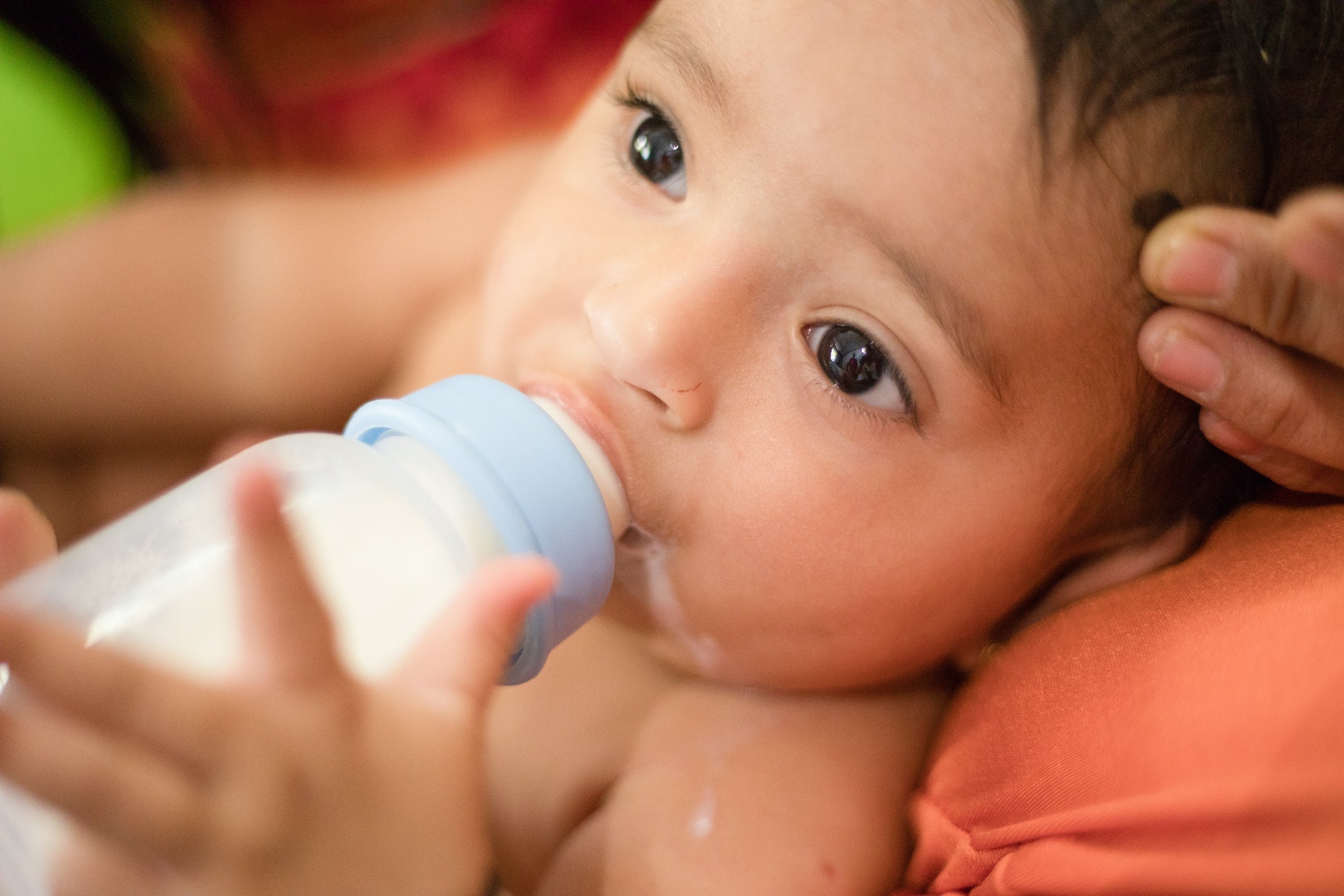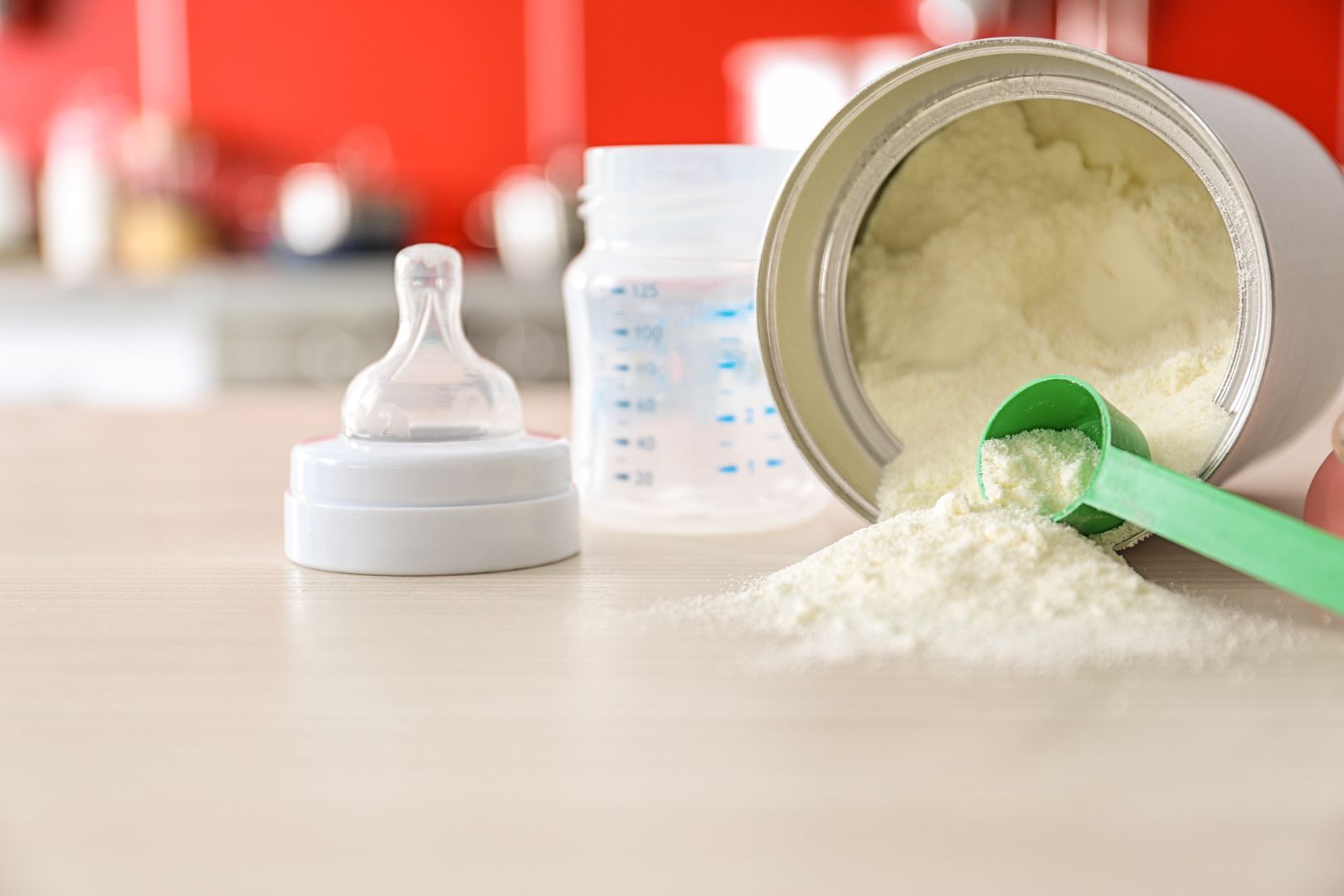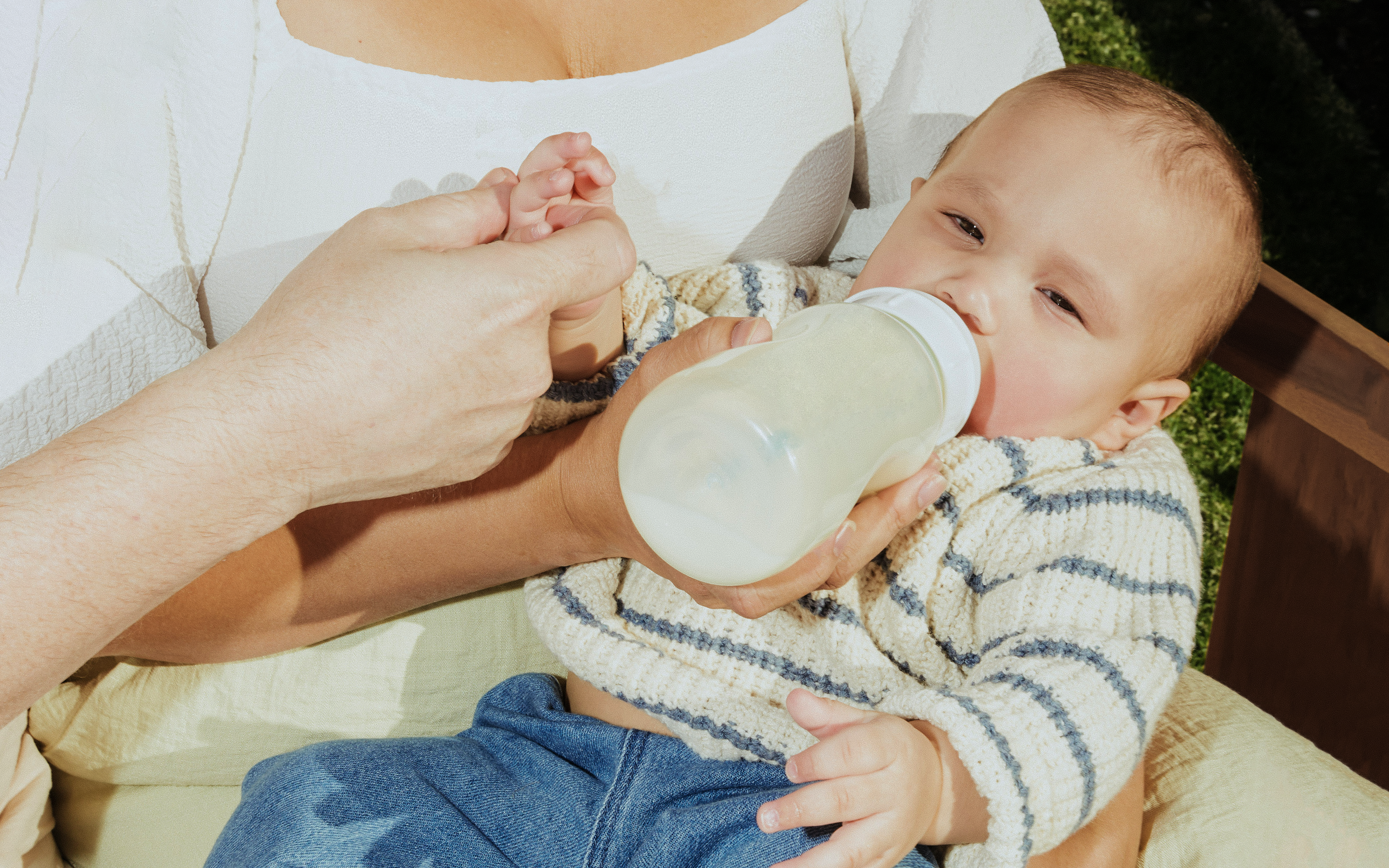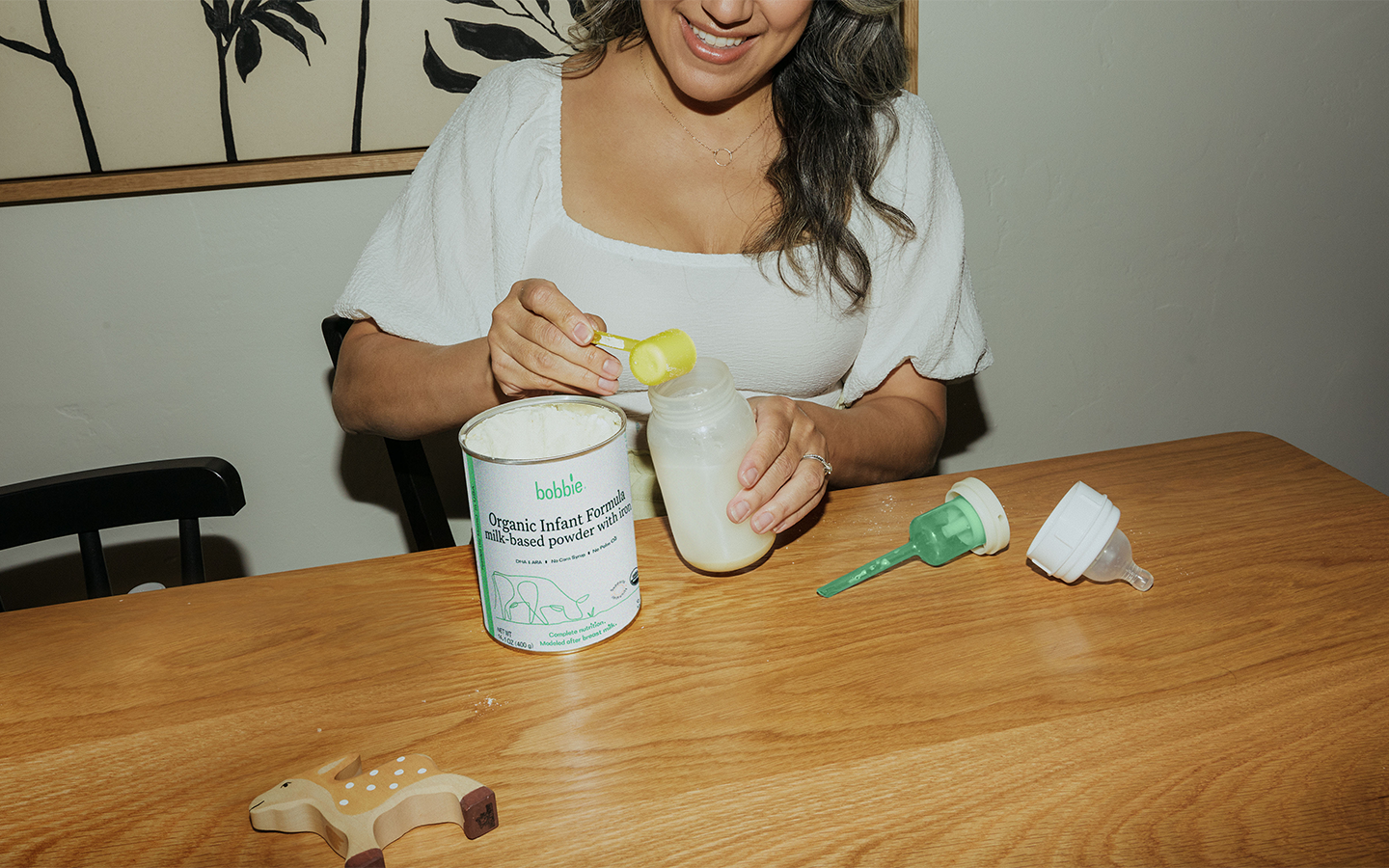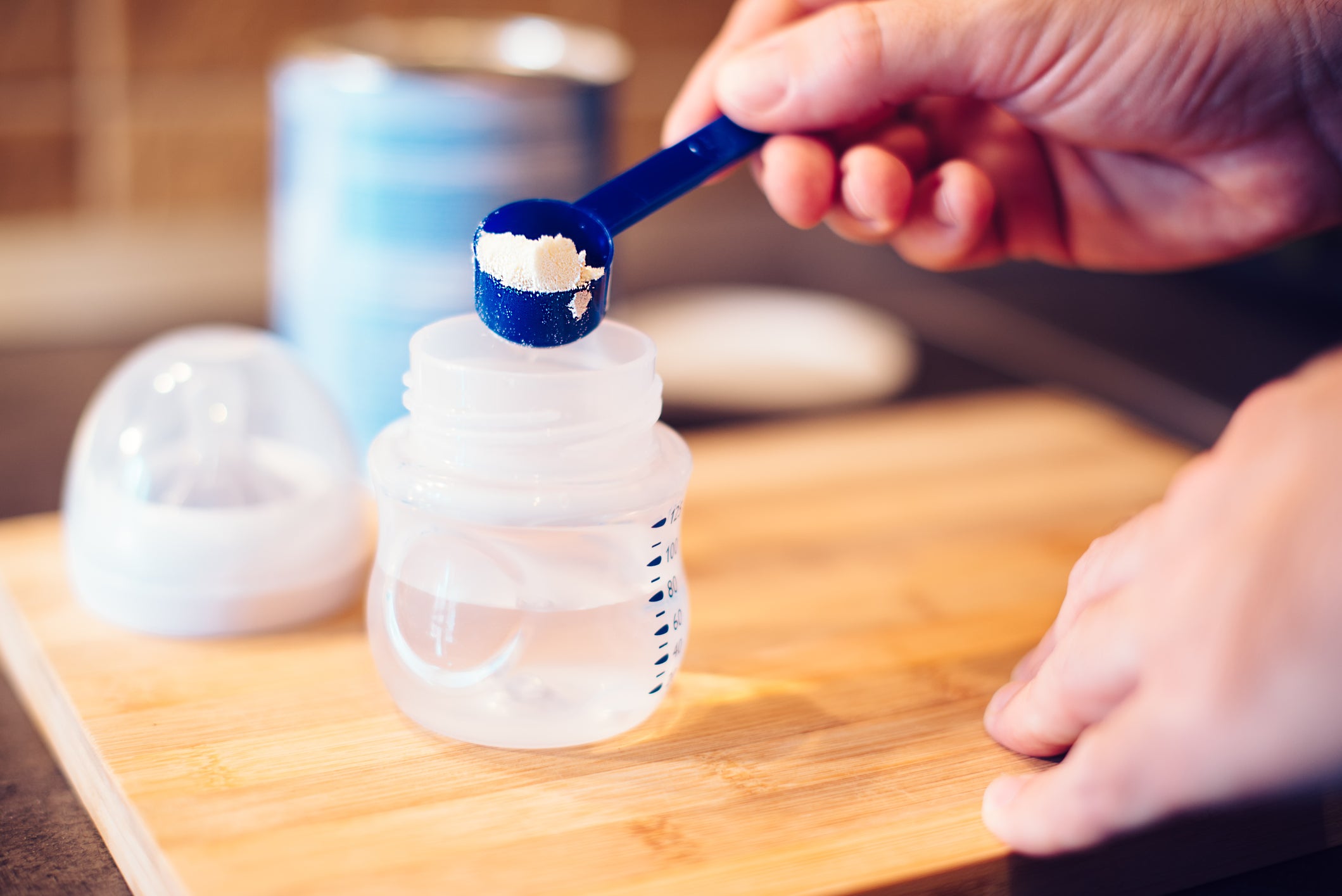Published February 29, 2024

How To Help a Gassy Baby: Causes, Symptoms and Remedies
No parent likes to see their baby in pain or discomfort, and one of the most common culprits behind a fussy, crying baby is gas! If your little one — especially a newborn — is dealing with tummy trouble or gas, there are a few simple ways to make them more comfortable.
Let’s dive into how you can bring your gassy baby some relief.
What Causes Gas in Babies?
It’s important to remember that baby gas is completely normal, whether they’re breastfed or bottle-fed. But, what’s to blame? A few factors might be at play:
1. Immature Digestive Systems
Babies, especially newborns, have immature digestive systems. Learning to pass gas or stools can be tricky for babies just figuring out how to coordinate their muscles.
2. Excess Air Intake During Feeding
Another big cause of gas is swallowing excess air while feeding. This can happen due to a poor latch, which might be caused by issues like lip or tongue ties, oral-motor dysfunction or using a shallow nipple. Gulping during feedings can also lead to trapped air, often caused by a nipple with too fast of a flow or the use of bottle propping (which is never recommended!).
3. Trouble Digesting Milk Proteins
Your baby’s gas may also result from trouble digesting intact milk proteins. For babies who do not have a milk protein allergy, some parents find that switching to a gentle formula with partially hydrolyzed milk proteins can provide relief. If you think this might help, check with your pediatrician to see if a switch makes sense for your baby.
Bobbie Organic Gentle Infant Formula is the only baby formula in the U.S. market that offers 100% partially-hydrolyzed whey protein and 100% organic lactose as the carbohydrate source. Our gentle baby formula is easy on sensitive tummies to help alleviate fussiness from gas. Shop Bobbie Gentle today!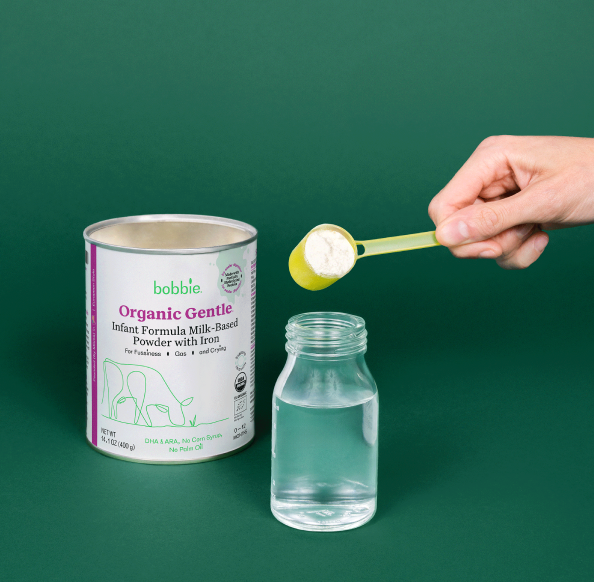
Shop Bobbie Gentle Organic Infant Formula
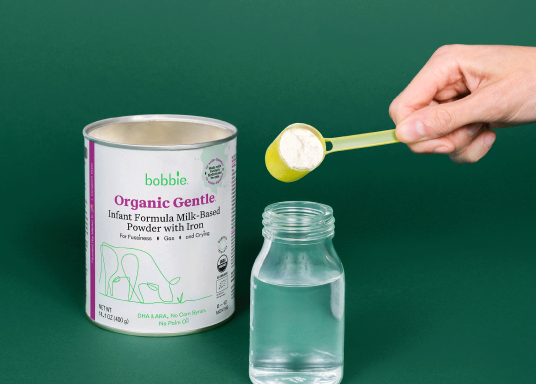
4. Overfeeding
Feeding too much at once can overwhelm your baby’s tummy, leading to gas and discomfort. When they consume more than their digestive system can handle, extra gas can build up as they process the milk or formula. Try offering smaller, more frequent feedings to avoid the overload.
5. Introducing New Foods
Starting solids is an exciting milestone, but their digestive system is still adapting. New foods, especially those that are harder to digest, may lead to gas as their system gets used to breaking down different nutrients. Introducing new foods slowly helps their little tummy get used to the change.
Recognizing Gassy Baby Signs and Symptoms
If your baby seems uncomfortable and you're wondering whether gas is the culprit, here are some common signs to watch for. Recognizing these symptoms can help you provide quick relief:
- Excessive fussiness: If your little one seems extra cranky for no apparent reason, trapped gas could be the cause. Gas discomfort can lead to more frequent fussiness.
- A firm, distended belly: A tight, bloated tummy is a telltale sign of gas. Gently press on your baby’s belly — if it feels firm, they may have some gas buildup.
- Back arching: Notice your baby arching their back? This is a common sign that they’re feeling discomfort and trying to ease gas pain, especially after eating.
- Discomfort after eating: If your baby is squirming or seems unsettled after feeding, gas might be to blame. This can happen if they’ve swallowed excess air during feedings.
- Pulling legs up to their belly: Babies often pull their knees toward their chest when they’re feeling gassy — it’s their instinctive way of trying to find relief.
- Frequent burping: While burping is normal, constant burping could be a sign that your baby is taking in too much air while feeding.
- Crying during or after feeding: If gas is causing discomfort while your baby is eating, it can lead to sudden crying spells during or right after feeding.
- Trouble sleeping: Gas discomfort can make it harder for babies to settle down, leading to restless or interrupted sleep.
If you’re ever worried about your baby’s symptoms or overall well-being, reach out to your healthcare provider. They can offer personalized advice and reassurance to support your little one’s health and comfort.
Sign up to get the scoop on feeding, sleep, poop, and so much more. By singing up for email, you are to receive marketing emails from Bobbie and can manage your email preferences or unsubscribe at anytime

Your go-to resource for all things new baby.
Remedies and Techniques for Baby Gas Relief
While baby gas is typically harmless, you never want to see your little one uncomfortable! Here are some of the best ways to help your baby relieve gas buildup:
Use an Anti-Colic Bottle
These are special bottles designed to reduce air intake and help colicky babies. When babies swallow extra air, it can get trapped in their digestive system, causing discomfort. Anti-colic bottles, like Dr. Brown's bottle, come with an internal vent system that prevents air from mixing with the liquid. Another great option is the Nuk Smooth Flow bottle, which lets milk flow slowly at a pace babies can handle.
Whatever bottle you use, make sure you're using the right nipple flow. For newborns, start with the slowest flow to prevent gulping and air intake. As your baby grows, you can adjust to a faster flow, but don’t stress too much about the age recommendations for each flow level — there’s no standardization among different brands. One quick tip: if you turn the bottle upside down and it drips too easily, the flow might be too fast, especially for newborns.
Burp Your Baby During and After Feedings
If your baby is extra gassy after feedings, try burping them more frequently. You can stop every ounce or two for a burp break. Here are a few techniques to try:
- Hold your baby over your shoulder, gently patting and rubbing their back. The pressure of their body against yours often helps release trapped air.
- Sit your baby upright on your knee, supporting their head under the chin, and pat or rub their back.
- In the same position, you can gently move their torso in a circular motion to help release the extra air.
Position Your Baby for Gas Relief
Positioning can make a big difference in preventing and relieving gas. While bottle feeding, keep your baby more upright rather than lying horizontally in your arm. After feeding, hold them upright for 10-15 minutes to help any excess gas pass. Tummy time is also great for overall baby development and puts gentle pressure on the stomach to relieve gas.
A Note On Baby Gas Drops
Ask your doctor about using simethicone gas drops. While they are marketed to help break up gas bubbles in your baby’s tummy, evidence suggests they are no better than placebo for the management of gas related to colic. If you choose to give them to your baby, always follow the directions provided on the packaging.
Give a Baby Massage
If your baby seems uncomfortable, try a gentle massage to help move the gas along. Lay your baby on their back and rub their belly in a circular motion. You can also use your thumbs to trace shapes like “I” or “U” to massage out the trapped air. Another method is bicycle kicks — gently push each leg toward the belly, alternating the movements to help move the gas through the lower intestines.
Offer Probiotics
Infant probiotics contain "good bacteria" that can support your baby’s digestive health.* Since probiotics are labeled as dietary supplements, they aren’t regulated like medications are by the FDA. That means it’s even more important to choose a trusted brand. Remember, consult with your pediatrician before introducing any new supplements.
Try a Warm Bath
A warm bath can do wonders for a fussy baby dealing with gas pain. Not only is it soothing, but the kicks and splashes in the water can help move trapped air through their system.
Switch to a Gentle Formula
If your baby is still struggling with gas, switching to a gentle formula might help. These options most often use partially hydrolyzed milk proteins, which are easier for babies to digest. While many parents think lactose intolerance is the cause of gas, there’s no evidence that lactose-free or reduced-lactose formulas alleviate gas. It may be that the baby has trouble digesting intact milk proteins. That’s why many parents see improvement with a gentle, partially hydrolyzed formula for babies who do not have a cow’s milk protein allergy. Consult your baby’s pediatrician before making a change to their infant formula.
Bobbie Organic Gentle Infant Formula is the only baby formula in the U.S. market that offers 100% partially-hydrolyzed whey protein and 100% organic lactose as the carbohydrate source. Our gentle baby formula is easy on sensitive tummies to help alleviate fussiness from gas. Shop Bobbie Gentle today!
Shop Bobbie Gentle Organic Infant Formula

Answering Gassy Baby FAQs: Insights and Tips for New Parents
Here’s a rundown of key questions you might have about managing and understanding your baby's gas:
How can I differentiate between normal gas and colic in my baby?
Normal gas usually causes short bouts of discomfort that can be eased with a good burp or a little soothing. But colic, on the other hand, is more intense — characterized by prolonged, inconsolable crying lasting for hours and occurring several times a week. If your baby’s crying feels excessive, it’s a good idea to consult your pediatrician for expert guidance.
Are there specific feeding positions that can help reduce gas?
Absolutely! It’s recommended to keep your baby upright during and after feedings to help limit excess air intake. Burping frequently and avoiding lying your baby flat right after feeding can also help reduce gas buildup.
Can certain baby formula ingredients contribute to gas?
Yes, some babies have a tough time digesting certain proteins found in standard infant formulas. If you suspect your formula is causing the issue, consider switching to a gentle or partially hydrolyzed formula. Be sure to consult with your pediatrician if you're considering a change.
How can I tell if my baby’s gas is related to food sensitivity?
If your baby's frequent gas is paired with other symptoms like skin rashes, excessive crying or digestive troubles, food sensitivity could be the cause. Sound familiar? Speak to your pediatrician who can help you figure out the best next steps.
How long does it typically take for a baby's digestive system to mature and for gas issues to improve?
Most babies' digestive systems start to mature around four to six months, leading to less frequent gas issues. By the time they’re toddlers, gas-related discomfort usually fades altogether.
How can I manage gas if I’m exclusively breastfeeding?
Research reveals that healthy, well-nourished mothers provide the best nutrients for growth and development through breastfeeding. But cutting out foods from your diet in an effort to manage gas in your breastfed baby could be unnecessary. Instead, talk to your child’s pediatrician. You may also find that burping more frequently during feedings can also ease their discomfort.
Can teething cause increased gas in babies?
Yes, it can! Teething babies tend to swallow extra air while crying or gnawing on toys, which can lead to more gas. Keeping an eye on their comfort and offering gas relief methods can help.
When in Doubt, Wait it Out
It’s normal for infants to experience some gas. Rest assured that as your baby’s digestive system matures, these symptoms will likely ease up. However, if you have any concerns about your baby’s symptoms, don’t hesitate to talk to your pediatrician.
If you're searching for a formula that supports your baby's health and development, Shop Bobbie organic infant formulas. They’re crafted to help make feeding time smoother and more comfortable for both you and your little one.
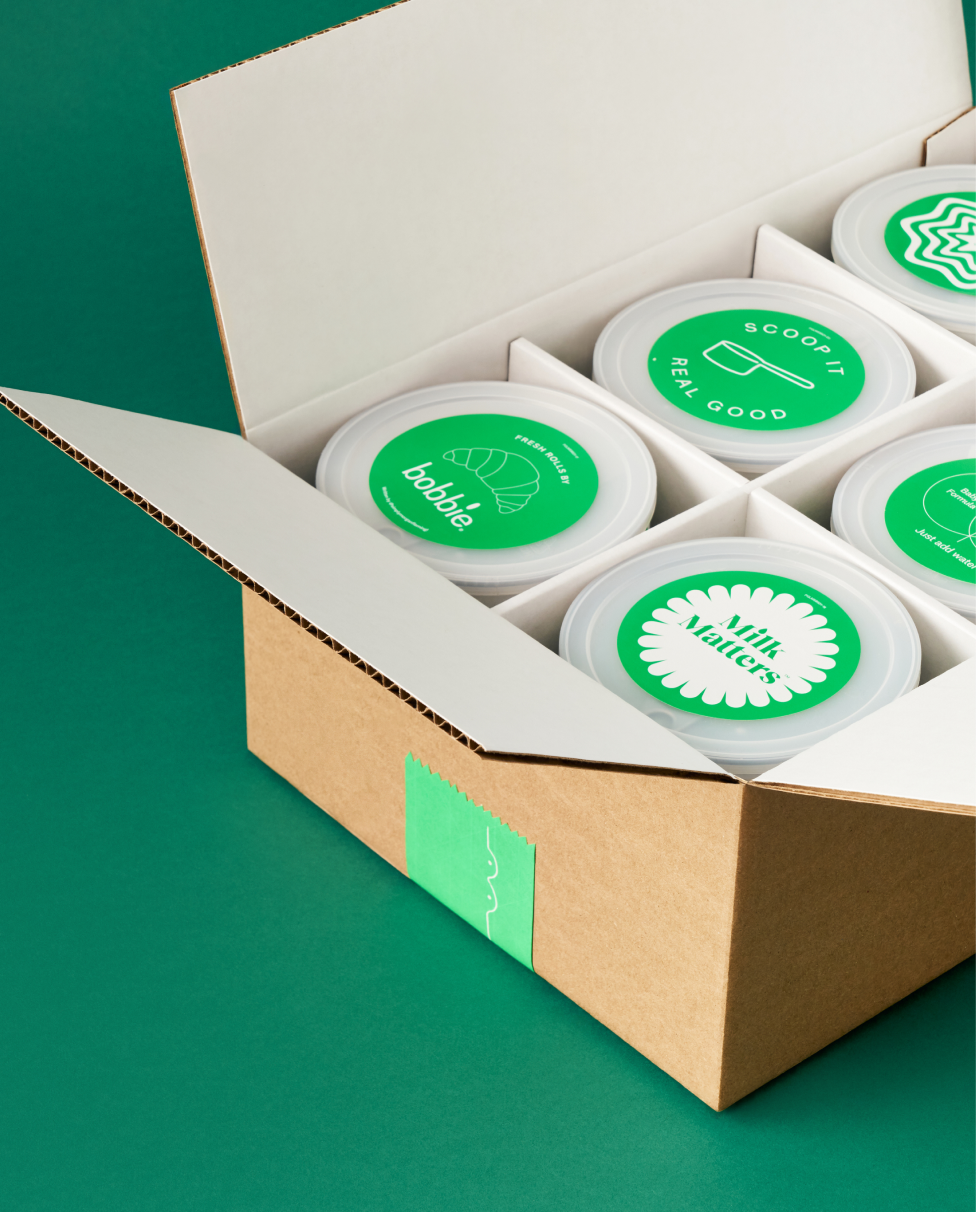
Shop Bobbie Organic Infant Formula
Bobbie Organic Infant Formula is a USDA Organic, EU-style infant formula that meets all FDA requirements. It is a complete nutrition milk-based powder modeled after breast milk and is easy on tummies. It is non-GMO and doesn't have corn syrup, palm oil, or maltodextrin. Shop Bobbie today!

*These statements have not been evaluated by the Food and Drug Administration. This product is not intended to diagnose, treat, cure or prevent any disease.
References: “How to Break Up Gas”
The content on this site is for informational purposes only and not intended to be a substitute for professional medical advice, diagnosis or treatment. Discuss any health or feeding concerns with your infant’s pediatrician. Never disregard professional medical advice or delay it based on the content on this page.








